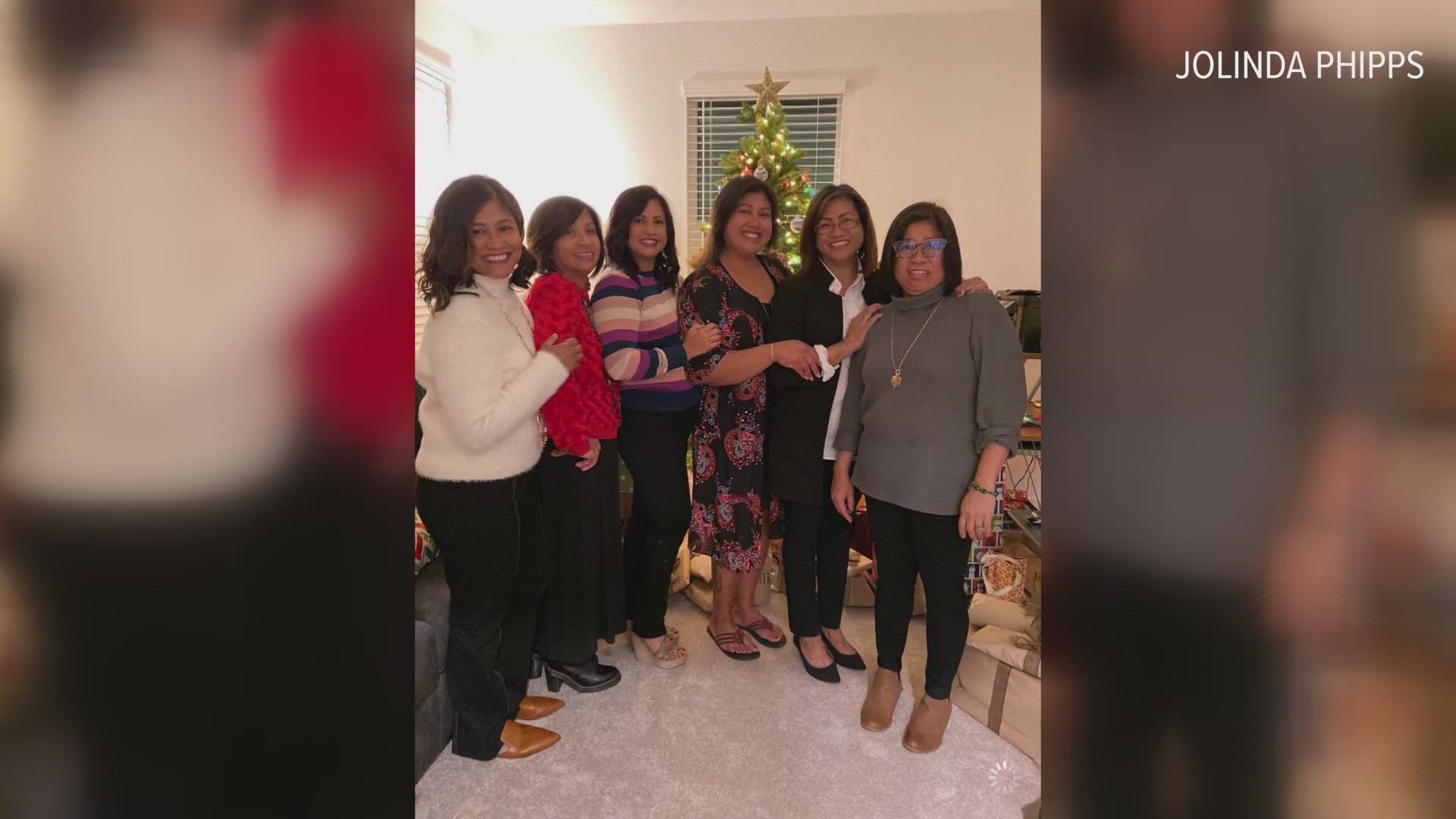SACRAMENTO, Calif. — The holidays are back, and what is typically a time for joy and togetherness can become a confusing and scary occurrence for someone living with dementia. The Alzheimer's Association said large gatherings, travel, flashing lights and loud noises all lead to increased confusion and a higher risk of wandering.
Sacramento resident Jolinda Phipps has five sisters. Her sister Jocy was diagnosed with early-onset dementia in 2019.
"After the initial shock, you know, very heartbreaking news, we knew that her journey needed to include us as a family, as a sisterhood, to get together and see how we can help her two daughters," Phipps said.
It's a group effort amongst the family and on holidays they work to make sure isn't left out of the celebration.
"She's physically, emotionally, and mentally unable to engage, and so we really needed to find a way to you know, include her," Phipps said.
Jocy was the cook of the family. The sisters now attempt to recreate her dishes.
"That is our way of engaging her, engaging really her memory, the memory she had prior to her diagnosis. It's kind of funny because when she cracks a little smile or kind of wiggles her nose, we think that she's critiquing us," Phipps said.
They also make sure everyone around Jocy is vaccinated, and that she's always sitting next to a family member who can hold her hand or rub her back.
These are things Alzheimer's Association Director of care and support Alexandra Weisgerber would agree with. She recommends having a quiet place for a loved one and a flexible schedule.
"I would say overall try to focus on the things that bring happiness and let go of those activities that seem overwhelming, stressful or too risky for caregivers. If people ask if they can help, say yes, let them bring that casserole dish or the dessert. Let them be with your loved one," Weisgerber said. "Maybe we have them wash the vegetables, or fold the napkins for the table. And guess what, it's not the end product, it's that they're involved and feeling included."
The Alzheimer's Association offers a 24/7 helpline for the families of those with dementia. The number is 1800-272-3900. There is also a number of virtual support groups.
Watch more on ABC10

















